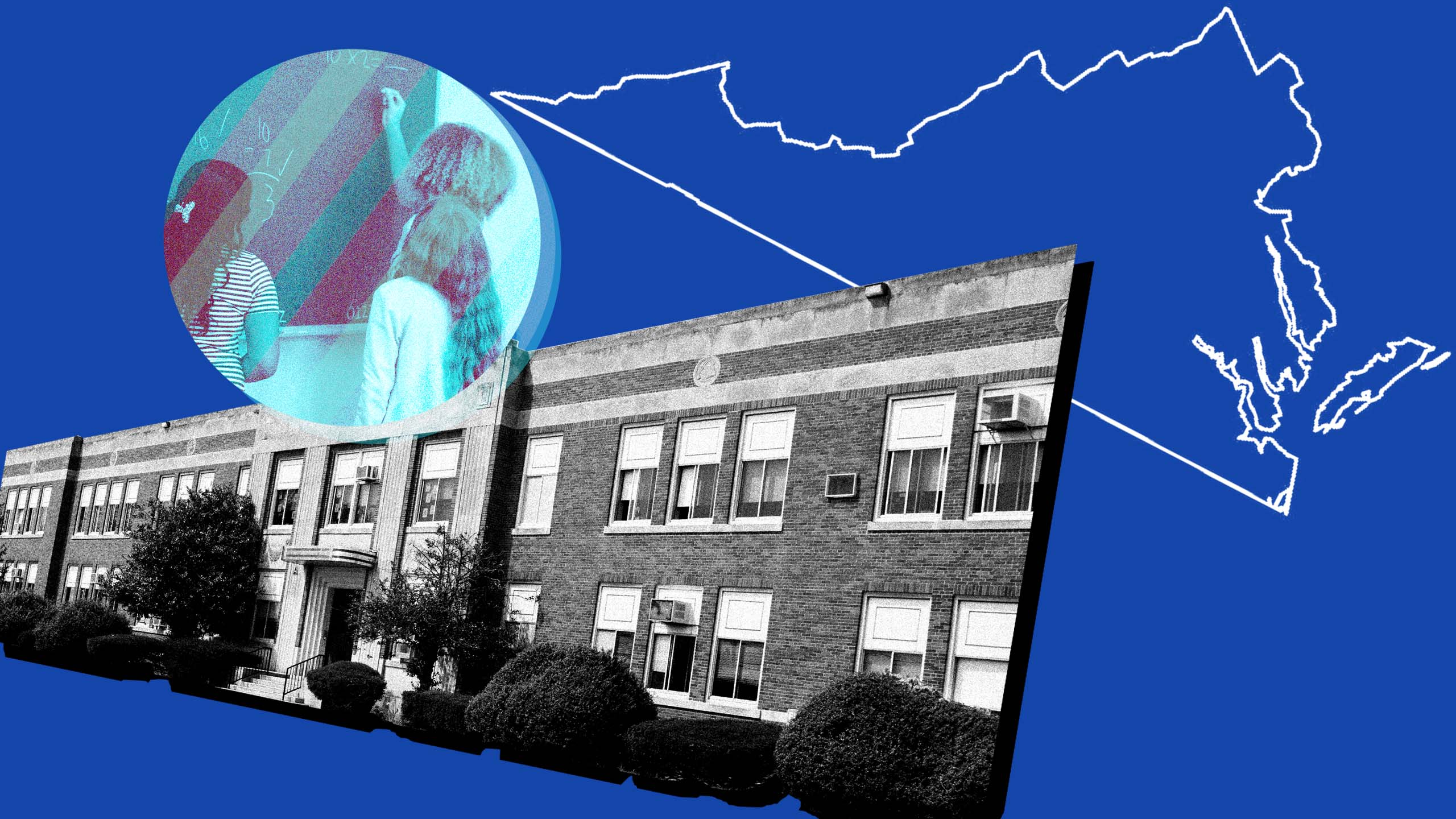Governor Glenn Youngkin just made the back-to-school season much more stressful for trans students in Virginia.
The Youngkin administration released new policies this Friday, stating that students and parents would need to file legal documents for the student to be called by their correct pronouns, the New York Times reported. These policies also bar trans students from using restrooms and locker rooms aligning with their gender and reverse LGBTQ2S+-inclusive policies the Virginia government enacted last year.
In addition, the new policies state that schools must inform parents about “all matters … related to their child’s health, and social and psychological development,” and that schools cannot tell teachers to “conceal information about a student from the student’s parent,” particularly with regard to gender—essentially requiring schools to out trans students to their parents. The policies also define a trans student as “a public school student whose parent has requested in writing … that their child be so identified while at school.”
Narissa Rahaman, the executive director for Equality Virginia, a LGBTQ2S+ advocacy group, explained in an email to Xtra that these policies would expose trans youth to discrimination at their schools.
“Governor Youngkin continues to bully marginalized youth to gain cheap political points, this time with a dangerous policy that received no public input while being drafted, was not developed in accordance with evidence-based best practices, would force transgender and non-binary students to be outed to their parents, and will put them at increased risk for harm and discrimination at school,” Rahaman said.
“By outing our students who have not had conversations with their parents, Governor Youngkin and the Virginia Department of Education are willingly subjecting LGBTQ2S+ students to abuse.”
These policies reverse LGBTQ2S+-inclusive guidelines put in place in 2021, which the writers of the new policy said “promoted a specific viewpoint aimed at achieving cultural and social transformation in schools” and “disregarded the rights of parents and ignored other legal and constitutional principles that significantly impact how schools educate students, including transgender students.”
Courtnay Avant, legislative counsel for the Human Rights Campaign, said in an email comment to Xtra that these policies reflect a broader pattern of anti-LGBTQ2S+ attacks from Youngkin, who opposes same-sex marriage and trans-inclusive youth sports.
“Governor Glenn Youngkin’s new anti-LGBTQ2S+ policies attacking the rights of transgender students living in Virginia is yet another example of an extremist politician using anti-LGBTQ2S+ rhetoric and policies to rile up their base,” Avant said. “Youngkin has repeatedly used his platform to promote anti-equality and anti-choice policies that are out of step with the views of everyday Virginians—and this new guidance is no exception.”
Although these new policies represent a setback for trans students, the previous pro-LGBTQ2S+ school policies were difficult to implement. The guidelines previously put forth by the Virginia General Assembly—which required schools to adopt policies minimizing discrimination against trans students—were adopted by only 13 school divisions in the state. Ninety followed guidance from the Virginia School Boards Association that conflicted with the model policies, while others rejected the policies outright.
Inclusive school policies are key to preventing discrimination against trans students in schools. According to a 2019 study done by LGBTQ2S+ education advocacy group GLSEN, trans and non-binary students who attended schools with trans-inclusive policy experienced significantly less discrimination than those who attending schools without it.
The study found that 44.9 percent of trans and non-binary students who went to schools without such a policy experienced pronoun discrimination, compared to the 18.8 percent of students experiencing discrimination at schools with the policy. The numbers were similar to policies regarding bathroom use: 53.6 percent of students without a pro-trans policy experienced discrimination regarding bathroom use, compared to 26.7 percent of students at schools with such a policy.
“Schools nationwide are hostile environments for a distressing number of LGBTQ2S+ students,” the study’s authors said. “As a result, many LGBTQ2S+ students avoid school activities or miss school entirely.”


 Why you can trust Xtra
Why you can trust Xtra


